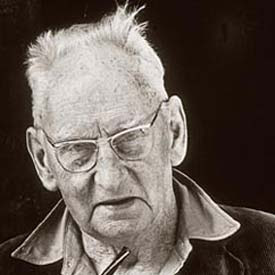A.S. Neill

Alexander
Sutherland Neill (17 October 1883 – 23 September 1973) was a Scottish
progressive educator, author and founder of Summerhill school, which
remains open and continues to follow his educational philosophy to this
day. He is best known as an advocate of personal freedom for children.
Neill
believed that the happiness of the child should be the paramount
consideration in decisions about the child’s upbringing, and that this
happiness grew from a sense of personal freedom. He felt that
deprivation of this sense of freedom during childhood, and the
consequent unhappiness experienced by the repressed child, was
responsible for many of the psychological disorders of adulthood.
The
main focus of educational interest and research at that time was the
question of how best to produce obedient soldiers who would uncritically
follow orders in battle, so Neill’s ideas, which tried to help children
achieve self-determination and encouraged critical thinking rather than
blind obedience, were seen as backward, radical, or at best,
controversial.
Many of Neill’s ideas are widely accepted today,
although there are still many more “traditional” thinkers within the
educational establishment who regard Neill’s ideas as threatening the
existing social order, and therefore controversial.
In 1921 Neill
founded Summerhill School to demonstrate his educational theories in
practice. These included a belief that children learn better when they
are not compelled to attend lessons. The school is also managed
democratically, with regular meetings to determine school rules. Pupils
have equal voting rights with school staff.
Neill’s Summerhill
School experience demonstrated that, free from the coercion of
traditional schools, students tended to respond by developing
self-motivation, rather than self-indulgence. Externally imposed
discipline, Neill felt, actually prevented internal, self-discipline
from developing. He therefore considered that children who attended
Summerhill were likely to emerge with better-developed critical thinking
skills and greater self-discipline than children educated in
compulsion-based schools.
These tendencies were perhaps all the
more remarkable considering that the children accepted by Summerhill
were often from problematic backgrounds, where parental conflict or
neglect had resulted in children arriving in a particularly unhappy
state of mind. The therapeutic value of Summerhill’s environment was
demonstrated by the improvement of many children who had been rejected
by conventional schools, yet flourished at Summerhill.
Strongly
influenced by the contemporary work of Sigmund Freud and Wilhelm Reich,
Neill was opposed to sexual repression and the imposition of the strict
Victorian values of his childhood era. He stated clearly that to be
anti-sex was to be anti-life. Naturally, these views made him unpopular
with many establishment figures of the time.
Source: Wikipedia
The Summerhill School has their own website: www.summerhillschool.co.uk
Bibliography
- A Dominie’s Log (1915)
- A Dominie Dismissed (1916)
- Booming of Bunkie (1919)
- Carroty Broon (1920)
- A Dominie in Doubt (1920)
- A Dominie Abroad (1922)
- A Dominie’s Five (1924)
- The Problem Child (1926)
- The Problem Parent (1932)
- Is Scotland Educated? (1936)
- That Dreadful School (1937)
- The Last Man Alive (1938)
- The Problem Teacher (1939)
- Hearts Not Heads in the School (1945)
- The Problem Family (1949)
- The Free Child (1953)
- Summerhill: A Radical Approach to Child Rearing (Preface by Erich Fromm (1960)
- Freedom, Not License! (1966)
- Talking of Summerhill (1967)
- Children’s Rights: Toward the Liberation of the Child (with Leila Berg, Paul Adams, Nan Berger, Michael Duane, and Robert Ollendorff) (1971)
- Neill, Neill, Orange Peel! (1972)



